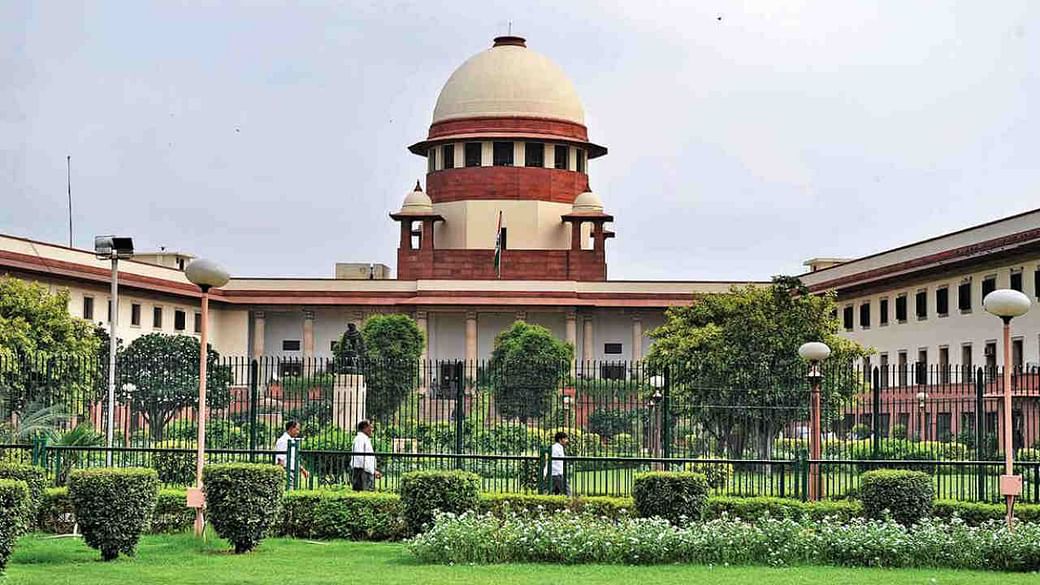
SC can invoke ‘extraordinary powers’ in special situations | Know how

The Supreme Court recently invoked “extraordinary powers” vested in it under Article 142 of the Constitution or Section 482 of CrPC to quash proceedings against a man convicted under the Scheduled Caste and Scheduled Tribe (Prevention of Atrocities) Act.
The case
The case, dating back to 1994, pertained to a clash between two neighbours – Ramawatar and Prembai – over a land dispute in Panna district of Madhya Pradesh. In the heat of the moment, Ramawatar had thrown a brick at Prembai and used casteist slurs and derogatory remarks at her.
Prembai, who hails from the Prajapati community, categorised as a scheduled caste in the state, filed a case against Ramawatar under the SC/ST Act. A lower court sentenced the accused to six months of rigorous imprisonment while imposing a fine of ₹1,000 on him. Ramawatar had challenged his conviction, but the Jabalpur Bench of the Madhya Pradesh High Court quashed it on August 2, 2010, following which he moved the Supreme Court.
He told the court that a compromise has been worked out between the two parties and that Prembai has even filed an application for compromise. He also assured the court that there is no existing enmity between the two parties who live in the same village.
Using its extraordinary powers, a bench of Chief Justice NV Ramana and justices Surya Kant and Hima Kohli, dropped criminal proceedings against Ramawatar, taking into consideration the compromise arrived between the two parties and to “avoid the revival of healed wounds, and to advance peace and harmony”.
What are extraordinary powers?
This leaves us with the question – what are the apex court’s extraordinary powers?
Article 142 of the Constitution empowers the Supreme Court with extraordinary or absolute powers to pass any decree to ensure the delivery of “complete justice”.
Here is how it is defined in the Constitution: “The Supreme Court in the exercise of its jurisdiction may pass such decree or make such order as is necessary for doing complete justice in any cause or matter pending before it, and any decree so passed or orders so made shall be enforceable through the territory of India in such a manner as may be prescribed by or under any law made by Parliament and, until provision in that behalf is so made, in such manner as the President may by order prescribe.”
In other words, the extraordinary powers empower the Supreme Court to resolve difficult cases which may not have adequate laws and where existing laws may not suffice or ensure the delivery of “complete justice”.
In the in SC/ST case, the apex court said that the mere fact that the offence is covered under a ‘special statute’ cannot prevent the court or the high court from exercising their respective powers, under Article 142 or Section 482 of CrPC, to dismiss the proceedings against the accused.
How can Article 142 be invoked in SC/ST Act?
Justifying its invocation of the extraordinary powers in the SC/ST Act, the court said it can be done in two situations:
First, when the offence despite being covered under the SC/ST Act, is “primarily civil in nature” and where it “has not been committed on account of the caste of the victim” or where the continuation of the legal proceedings would be an abuse of the process of law”.
Second, if the court, while hearing a plea for quashing proceedings on the basis of compromise or settlement, is sure that the “underlying objective of the Act would not be contravened or diminished” even if the offence goes unpunished.
The court said that it has also taken into account that both the parties are from the same social and economic strata and that the accused is not a repeat offender as there is no such other case against him.
“It appears to us that although the appellant may not belong to the same caste as the complainant, he too belongs to the relatively weaker/backward section of the society and is certainly not in any better economic or social position when compared to the victim,” the bench observed.
Has it been invoked earlier?
Yes, several times.
The Supreme Court in 2019 invoked its special powers under Article 142 to grant five acres of land for the construction of a mosque in Ayodhya to the Muslim parties in the Ram Mandir case.
“The phrase ‘is necessary for doing complete justice’ is of a wide amplitude and encompasses a power of equity which is employed when the strict application of the law is inadequate to produce a just outcome. The demands of justice require a close attention not just to positive law but also to the silences of positive law to find within its interstices, a solution that is equitable and just. The legal enterprise is premised on the application of generally worded laws to the specifics of a case before courts,” the court had said while describing its powers under Article 142 in the Ayodhya judgement.
The same year, the apex court had used its extraordinary powers to grant divorce to a couple on the grounds of “irretrievable breakdown of marriage”, a reason which is not mentioned in the Hindu Marriage Act, 1955.
In 1989, the apex court invoked its extraordinary powers to grant compensation of $470 million to the victims of the Bhopal Gas tragedy. While pronouncing its judgment in the Union Carbide case, the court observed that the constitutional powers vested in it under Article 142 to ensure “complete justice” empowers it to override the laws made by the Parliament.
The apex court, in a bid to curb accidents due to drunk driving, had invoked the same provision again in 2016, to ban the sale of liquor within 500 metres of national or state highways or of a service land along the highway.

